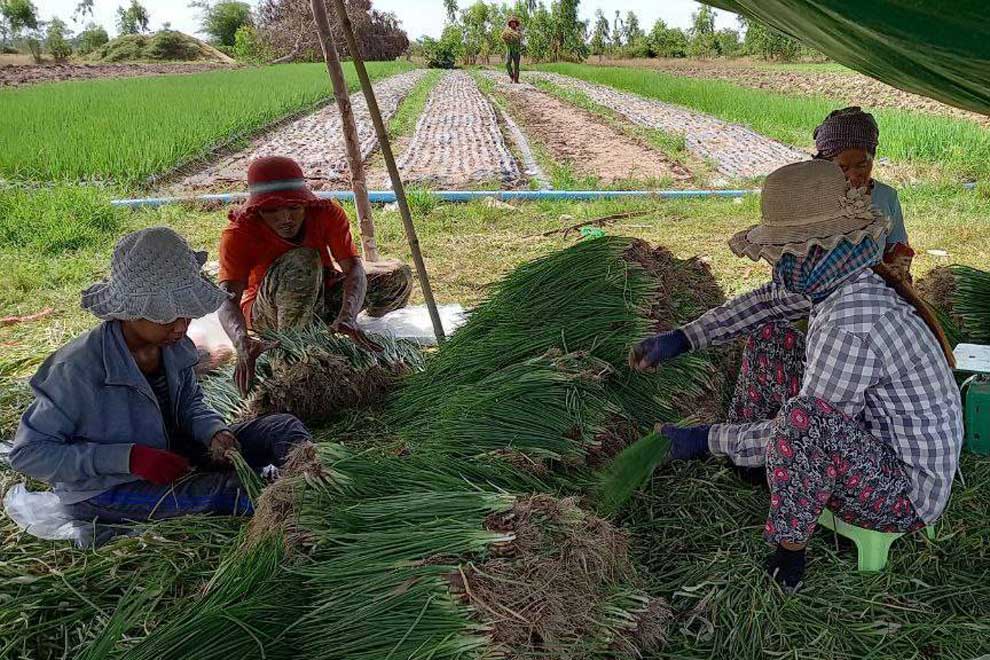
Farmers and members of the cooperative harvest agricultural produce in March. PHOTO SUPPLIED
There are more than 1,000 agricultural cooperatives across Cambodia. While the majority are succeeding and generating additional income for their members, some are inactive.
Rith Chantha, chair of the Toek Hout Mean Chey Kdey Sang Khem Agricultural Cooperatives, located in Rolea Ba’ier district’s Toen Hout commune of Kampong Chhnang province, explained that her cooperatives was succeeding and planning to grow, thanks to the dedication and solidarity of its members.
Chantha noted that strategic planning and communication – both between the members and with provincial authorities – is crucial.
“When we communicate well, the authorities are prepared to help us. We need to have a clear management plan, because working with farmers is difficult,” she said.
“Cooperatives should change their mindset from wanting others to help them into helping themselves. Once we are good at helping ourselves, others will want to assist us,” she added.
Agricultural cooperatives aim to gather farmers’ resources in order to increase agricultural productivity. They are private legal entities formed by groups of farmers who volunteer to combine their capital and manage their cooperative in a democratic manner.
They aim to improve the members’ livelihoods while promoting solidarity and preserving farmers’ traditions.
At present the Toek Hout Mean Chey Kdey Sang Khem Agricultural Cooperatives has a total of more than 752 member families, including 530 women, with the majority of them growing vegetables and livestock. Seventy-five per cent of them are agricultural workers, with some working in retail or factories.
This cooperative specialises in leafy vegetables, supplying from two to four tonnes per day.
Chantha said that almost 90 per cent of the cooperative members grow vegetables.
“We supply spring onion and garlic, along with kale, bok choy, basil, and Chinese cabbage to markets in Battambang and Phnom Penh. We also supple some duck eggs, mostly to marts in Phnom Penh,” she explained.
She added that the cooperative can earn anywhere from four to 12 million riel per month.
“Our work is focused mainly on improving the farmers’ incomes. Our goal is to enable them to earn an average income of $5,000 a year,” she said.
She also revealed that the cooperative plans to expand its membership to 2,500 families by 2027 and will need to employ five staff. It also intends to buy a plot of land and establish a rice mill for the use of its members.
The cooperative also intends to train human resources by building a facility for studying and an educational centre for the children of the community.
According to the 2022 Agricultural Community Observation Report of the Department of Agricultural Cooperative Promotion, there are only 219 (18 per cent) strong agricultural cooperatives, 828 (66 per cent) average ones and 204 (16 per cent ) that are classified as weak. 167 cooperatives are no longer working together.











